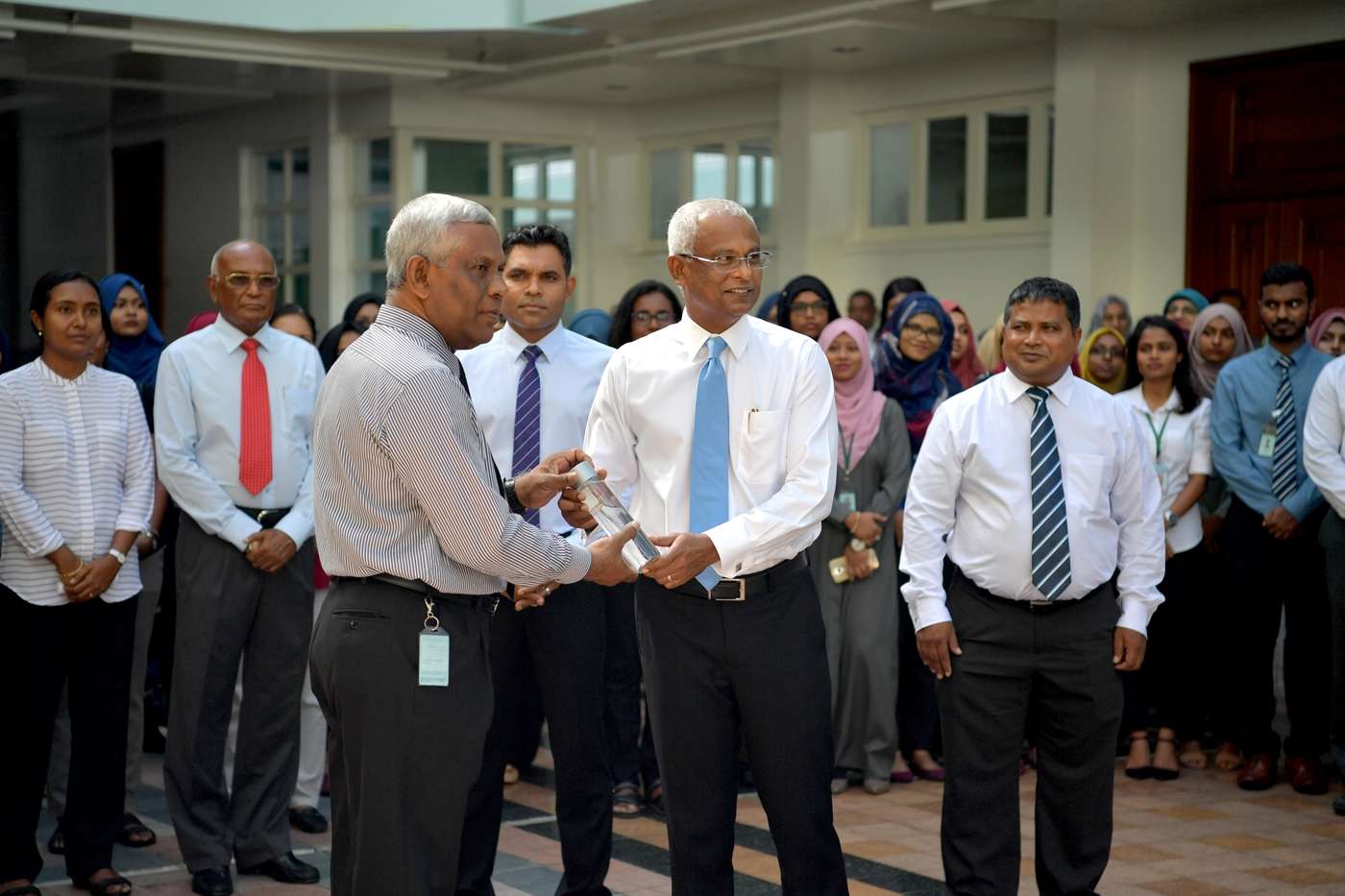President launches campaign to minimise single-use plastics
President Solih appealed for lifestyle changes to protect the environment.

02 Dec 2018, 09:00
Single-use plastics have been banned at the president’s office as a campaign was launched Sunday morning to minimise their use across government offices.
With more than 280,000 plastic water bottles used daily in the capital alone, the prevalence of plastic such as bags, bottles and wrappers in the Maldives was “at a worrying level,” President Ibrahim Mohamed Solih said at the launching event after presenting glass bottles to staff members.
Plastic makes up a large portion of the 860 metric tonnes of waste dumped into the ocean every day, he observed, stressing the importance of the initiative to preserve and protect the environment.
While the Maldivian economy was dependent on natural resources, “the increase in dumped garbage is the biggest damage done to the sea and life in the sea.”
Become a member
Get full access to our archive and personalise your experience.
Already a member?
Discussion
No comments yet. Be the first to share your thoughts!
No comments yet. Be the first to join the conversation!
Join the Conversation
Sign in to share your thoughts under an alias and take part in the discussion. Independent journalism thrives on open, respectful debate — your voice matters.




